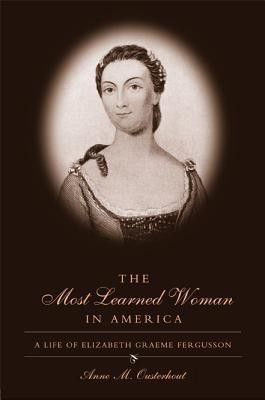The Most Learned Woman in America(English, Paperback, Ousterhout Anne M.)
Quick Overview
Product Price Comparison
During the era of the American Revolution and long after, the name Elizabeth Graeme Fergusson was well known in Philadelphia, recognized as belonging to one of British North America's most illustrious women of letters. One admirer dubbed her "the most learned woman in America." In this, the first full-length biography of Fergusson, Anne M. Ousterhout brilliantly captures the life and times of America's first great female savant. Born in 1737 to a wealthy family, Elizabeth Graeme Fergusson excelled from an early age. Although women in her day were denied higher education, Fergusson read widely, educating herself in literature, history, and languages, even reading classical literature in the original tongues, an unusual ability for a colonial woman. She wrote prolifically-often until midnight or later, spending but a few hours sleeping-and published her poetry. Her journals of a trip to England and Scotland circulated widely among admiring Philadelphians. During the 1770s she hosted a Saturday evening salon at her home that was unrivaled in the colonies for its brilliance. Yet despite her achievements, Fergusson's life was fraught with financial woes, bad romances, and treasonous plots that hounded her throughout her life. After her father forbade her marriage to Benjamin Franklin's illegitimate son, she secretly married Henry Hugh Fergusson, a British Loyalist who left her before the Revolution. Henry's actions, together with Elizabeth's own political indiscretions, earned her potent enemies, leading to the confiscation of her family estate, Graeme Park. Although she eventually succeeded in reclaiming her property, her reputation was tarnished in the process. Her efforts to justify her actions were tireless, alienating friends and making the last fifteen years of her life miserable. The Most Learned Woman in America masterfully narrates Fergusson's efforts to live an appropriately genteel life, even as she struggled against the limits that her society placed on its women. In the process, we can begin to understand the conflicts-internal and external-that women of the Revolutionary generation faced.


